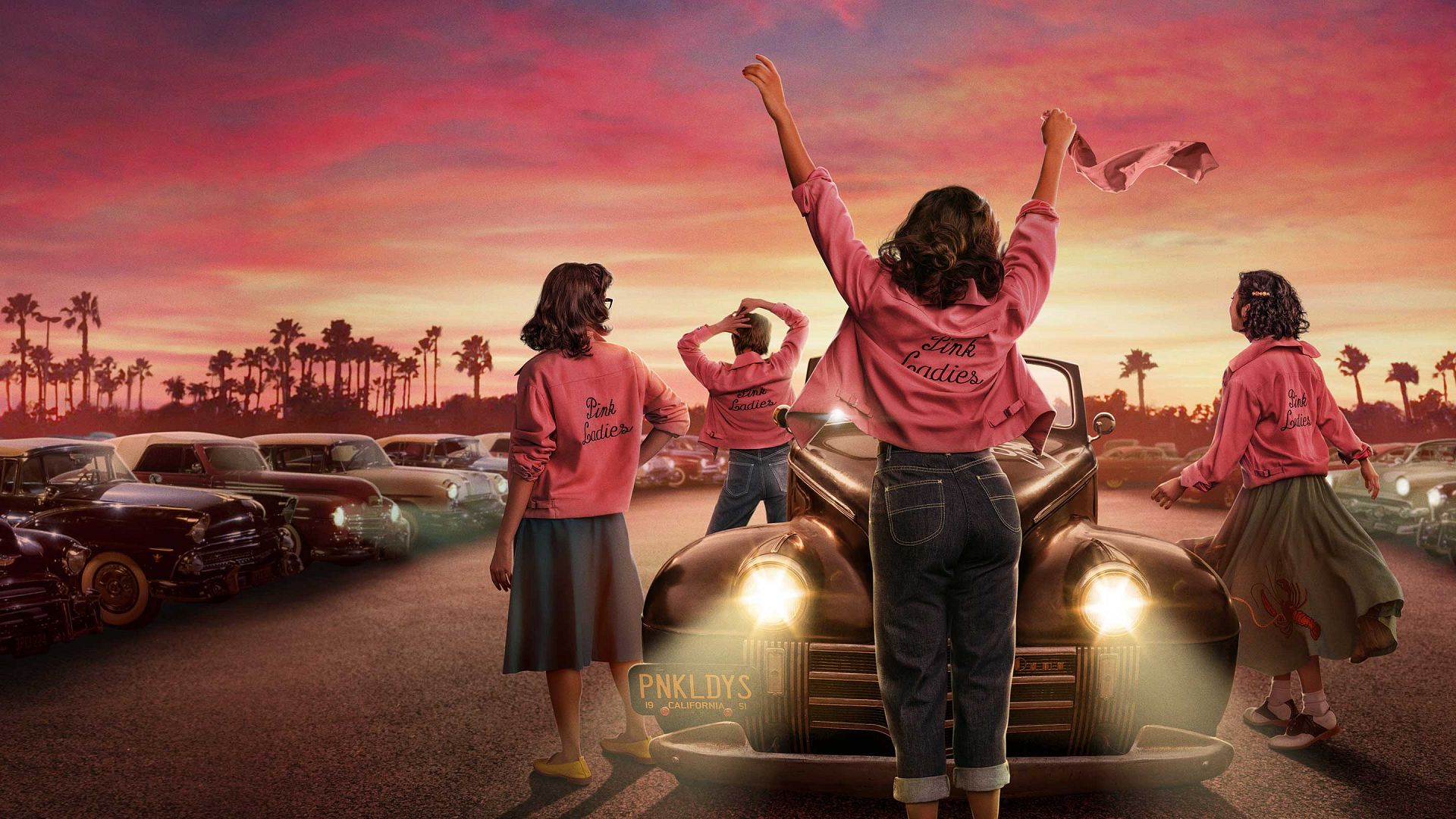The anticipated Grease prequel series released its pilot episode, “We’re Gonna Rule the School,” on April 6th. The series endured pressure from reviving esteemed material from its forerunner film. While keeping the spirit of the original intact through its scenery, costumes, and choreography, there is a distinct progressive take in which creator and showrunner, Annabel Oakes, addresses issues including racism, gender inequality, stereotypes, sexuality and female friendships.
It has been over 40 years since the release of the original 1978 musical “Grease,” The prequel series takes place four years before the original film and delves into the origin story of the pink ladies, the renowned girl gang. Tackling so much at once, the chaotic and overstimulating nature of the pilot episode halts her efforts to stand out, yet there is much potential for the characters of the show.
The opening shot of two Rydell High School students hooking up in a car introduces us to Jane Facciano (Marisa Davila) a half-Italian and half-Puerto Rican — the former new girl and spectacled bookworm who has spent the summer of 1954 in a secret relationship with Buddy (Jason Schmidt), the most sought handsome quarterback who seems genuinely in love with her. While Jane assumes that it is the end of their summer fling, to her surprise Buddy takes the initiative to ask her to go steady and public with their relationship. Paying homage to an original line between characters Sandy and Danny from the 1978 film, Jane asks Buddy, “This isn’t the end?” to which he replies, “Of course not, it’s only the beginning.”
This sets up the dramatic spark which baffles and brings commotion to Rydell High. In the next shot, Jane is seen walking into the drive-in wearing Buddy’s red-and-white Rydell Ranger jacket. Nostalgia comes rushing once the first musical number hits with the iconic song “Grease”.Throughout the performance, the switch-off in lyrics and camera work follows characters that will come to form the original girl gang, “The Pink Ladies.”
Further, Jane’s fleeting happiness is briefly dismissed when she begins dealing with the ramifications of false rumors of that night spread by a friend of Susan (Madison Thompson), Buddy’s ex-girlfriend. Without a mutual camaraderie, we are also introduced to other outcast members with diverse storylines such as Nancy Nakagawa (Tricia Fukuhara), a Japanese American student who aspires to be a fashion designer and whose best friends are in relationships that exclude her from being heard. Olivia (Cheyenne Isabel Wells), a confident Mexican American student whose alleged past romantic dalliance with her teacher has brought hardships at school and Cynthia (Ari Notartomaso), a gender non-conforming “tomboy” who’s passionate about wanting to join the T-birds, a greaser gang run by Olivia’s brother, Richie (Jonothan Nieves).
All of these transpired storylines buildup to the topic of the student council elections and the visions that students have for the future of Rydell High. Early on it was expressed that Buddy desired to campaign for president and Jane for student council. This is why he and Jane tried to exonerate themselves by combating false rumors and redeeming their reputation. Even then, the sexism and misogyny are quite clear as Buddy is congratulated for having been intimate with Jane when she only receives shame. Later on, coming to hear from Buddy himself that he started the rumor, Jane breaks up with him.
The pilot episode chronicles and explores these four characters individually but eventually comes together when Jane announces that she will be running against Buddy for the presidential position and Nancy, Cynthia and Olivia come to her defense.
Exemplifying self-worth and self-love, it is reasonably assumed that the remaining nine episodes won’t focus on a complicated romance but on the self-empowerment of these diverse outcasts and the confidence they have in their identities and experiences that won’t succumb to societal norms.
Verdict: The spin-off’s ambitious take can be overstimulating in the sense of the filming feeling overpacked with characters on screen, the mediocre and slightly off-track ambiance of musical numbers at times and unimaginative dialogue. Redeeming factors that hold promise are the ensemble cast of the Pink Ladies themselves.








